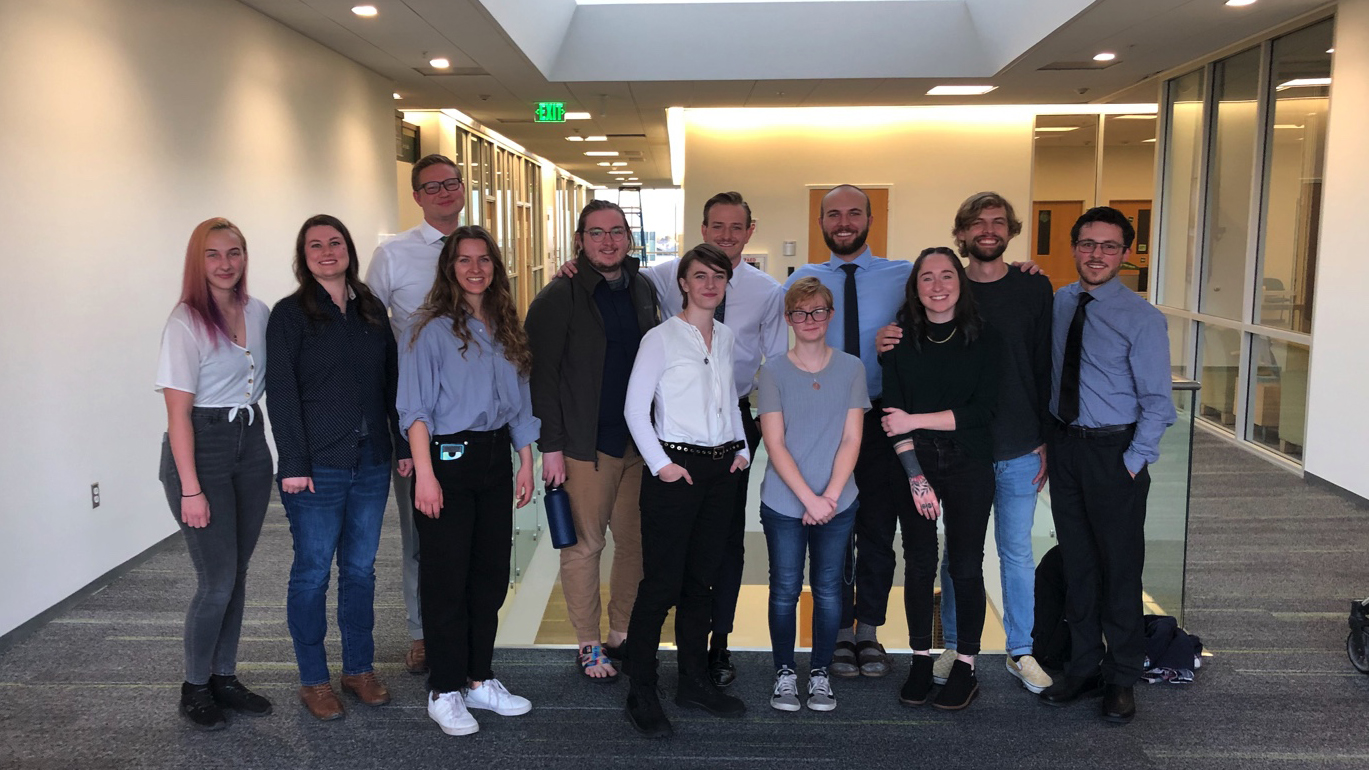Sixteen student teams representing 15 well-known colleges and universities like Harvard University and the University of Colorado competed in the 2021 Wasatch Mountain Ethics Bowl on Nov. 13, 2021, and when the dust settled two teams remained undefeated — both from Utah Valley University.

OREM, Utah — Sixteen student teams representing 15 well-known colleges and universities like Harvard University and the University of Colorado competed in the 2021 Wasatch Mountain Ethics Bowl on Nov. 13, 2021, and when the dust settled two teams remained undefeated — both from Utah Valley University.
The wins for both UVU teams qualified them to vie with other regional winners in the National Intercollegiate Ethics Bowl in Cincinnati, Ohio in Feb. 2022. All 16 teams were assigned cases based on real-life ethical dilemmas six weeks before the competition, which included vaccine mandates, rock-climbing on public land, vaccine patents, Senate filibusters, and ransomware attacks.
To win, team members had to be the best at conducting sophisticated ethical analysis of the issues, come up with solutions and present and defend those solutions, pro or con in a civil, respectful manner before a panel of three judges from the academic and civic communities.
“One of the concerns educators and citizens have is the tension and the polarization in our society. People can't talk to each other,” said Karen Mizell, UVU faculty member and co-founder of the Wasatch Regional Ethics Bowl. “The Ethics Bowl is golden for having students sit down and talk about issues in a healthy, rational way, and to listen to each other.”
UVU students are especially equipped to do well in this competition because those who participate are enrolled in the Moral Reasoning Through Case Studies Ethics Bowl course, taught by Jeffrey Nielsen, senior lecturer, UVU Department of Humanities and Philosophy. The class meets twice a week to develop an understanding of moral theory and prepare for the bowl. UVU is one of the few schools in the region that offers an ethics course like this.
“This course is probably the most beneficial and helpful for my students in their university education and in their future careers,” Nielsen said. “I've had students who've been on the team, and then years later they'll let me know that in their jobs and their careers, the Ethics Bowl experience is what has given them the most help. They gain the ability to analyze a case and present a coherent argument about the right thing to do.”
Nielsen says that many of his students have gone on to practice law or medicine, teach, or become involved with business, and when they are charged to deal with major issues in the real world, they know how to effectively communicate with others.
According to Mizell, the Ethics Bowl differs from typical debate because students are not just scored for making cogent, powerful arguments. Overwhelming their opponents is not the aim. They are awarded points when they stop and listen to their opponents — when they acknowledge another’s argument for its compelling or persuasive points.
Nielsen’s teaching style is based on American Philosopher T.M. Scanlon, who said: “That's how you win an argument — when you make a moral judgement, you just have to provide reasons that other people can't reasonably reject. And we base our reasons on moral principles of respect, fairness, beneficence, and care.”
The UVU Ethics Bowl teams are following UVU’s engaged learning model and applying the principles they learn in class to succeed in the competition and in the workforce. UVU’s two teams will advance to the national competition to be held in February 2022 in Cincinnati, Ohio.
For more information about the UVU Department of Philosophy and Humanities, visit this website.